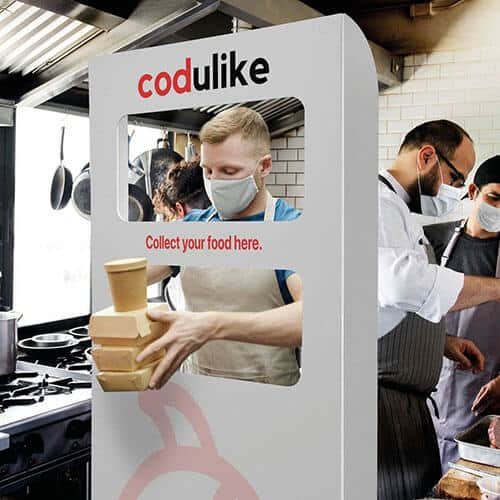As businesses grow, managing customer interactions can quickly become a challenge. From handling enquiries and maintaining client relationships to ensuring consistent service, scaling without the right systems can lead to missed opportunities. That’s why choosing the right tools to manage CRM is essential. With the right approach, you can stay organised, deliver a seamless customer experience, and scale confidently.
In this blog, we’ll explore how to select practical CRM tools that support growth, improve efficiency, and strengthen relationships.
Looking for expert support in developing a tailored CRM for businesses? At Printingprogress, we specialise in creating bespoke CRM and database systems to help companies scale smoothly. Call us on 0800 999 1094 or email us at info@printingprogress.co.uk.
At Printingprogress, we help businesses simplify customer management through bespoke CRM tools, built to streamline operations, enhance efficiency, and scale with ease.
Why Scalable CRM Tools Matter For Growing Businesses
Start-ups and small businesses often begin with spreadsheets, manual logs, or basic contact management. While this may work initially, these methods become ineffective as customer numbers increase. Scalable tools to manage CRM ensure that businesses can handle increasing demand without losing control.
They allow teams to centralise data, automate repetitive tasks, and personalise customer interactions at scale. This not only boosts efficiency but also helps businesses build stronger, longer-lasting relationships.
Benefits Of Using The Right CRM Tools
- Improved customer retention: By tracking preferences and behaviours, CRM systems allow you to personalise communications, increasing loyalty and repeat sales.
- Better decision-making: With analytics and reporting built in, decision-makers gain real-time insights to optimise strategies.
- Time and cost savings: Automation reduces repetitive tasks, freeing your team to focus on high-value work.
- Scalability and growth: Investing in the right tools to manage CRM today means you can confidently scale tomorrow without bottlenecks.
Also Read: How custom data systems streamline business operations
How To Choose The Right Tools To Manage Customer Interactions At Scale
Selecting the right CRM tools involves striking a balance between functionality and long-term growth potential. Below are the key factors to consider:
1. Centralised Customer Data
A scalable CRM should serve as a single source of truth, consolidating all customer information into a single, accessible system. This eliminates duplication, reduces errors, and ensures that every team member has a consistent view of each customer’s journey.
2. Workflow Automation
Automation is critical for efficiency. Features such as automated follow-ups, reminders, and reporting save time and ensure no customer is left unattended. It allows businesses to focus on nurturing leads and delivering value.
3. Integration With Existing Platforms
The tools to manage CRM should integrate with other systems you already use, such as email marketing platforms, accounting software, and project management tools. This ensures data consistency and reduces the need for manual entry.
4. Customisation To Fit Business Needs
Generic CRMs often fall short because they don’t match every business process. Customised systems give you the flexibility to adapt dashboards, reporting tools, and user access levels, so your CRM reflects the way your business operates.
5. Scalability For Long-Term Growth
A system should grow with your business, handling increased user numbers, larger databases, and advanced features without disruption. Scalability ensures you won’t outgrow your CRM too quickly.
6. Data Security And Compliance
With data protection regulations like GDPR, businesses must ensure customer information is stored securely. Selecting CRM tools with robust security protocols and comprehensive compliance support is crucial for maintaining customer trust.
7. Mobile And Remote Accessibility
Today’s teams are rarely tied to one location. A good CRM should offer cloud-based access and mobile apps, allowing sales teams, support staff, and managers to work effectively from anywhere.
8. Advanced Analytics And Reporting
Scaling requires insight. CRMs that provide custom reporting, trend analysis, and forecasting give you the data needed to make smarter decisions and optimise customer experiences.
At Printingprogress, we don’t believe in one-size-fits-all solutions. Instead, we design bespoke CRM development systems that reflect your business model and goals. This approach ensures your system is built around your processes, not the other way around. By aligning features with your exact requirements, you can enhance efficiency with custom database systems while also improving adoption rates across your team.
Common Challenges When Scaling Customer Interactions
1. Information Overload
As customer numbers grow, so does the data. Without structured systems, this can result in information silos and ineffective communication.
2. Lack Of Personalisation
Customers expect tailored experiences. Businesses that rely on manual or outdated systems often struggle to personalise at scale.
3. Misalignment Between Teams
Sales, marketing, and customer service teams often work with different data sets, creating inefficiencies. A well-chosen CRM brings alignment across departments.
CONTACT PRINTINGPROGRESS
Conclusion
Scaling customer interactions doesn’t have to be overwhelming. By focusing on centralisation, automation, integration, and flexibility, businesses can choose CRM tools that grow with them and ensure every customer feels valued.
At Printingprogress, we bring expertise, creativity, and a proven track record of building systems that work. From bespoke CRM development to advanced database solutions, we help businesses across London and beyond scale with confidence.
Ready to take control of your customer management? Contact us today on 0800 999 1094 or email us at info@printingprogress.co.uk to get started.
FAQs
1. What are the top features to prioritise in CRM tools?
Look for centralised data, automation, integrations, scalability, and strong security features.
2. How does a bespoke CRM differ from standard software?
A bespoke CRM is tailored to your exact processes, offering flexibility and efficiency compared to generic tools.
3. Can CRM tools really improve customer retention?
Yes. By tracking customer history and preferences, CRMs help businesses personalise communication and build loyalty.
4. Do small businesses benefit from CRM tools?
Absolutely. Even small businesses can save time, avoid errors, and prepare for growth by implementing scalable CRM solutions early.


 Eco friendly, sustainably sourced recycled FCS certified print
Eco friendly, sustainably sourced recycled FCS certified print Takeaway Screens
Takeaway Screens Postal Boxes
Postal Boxes